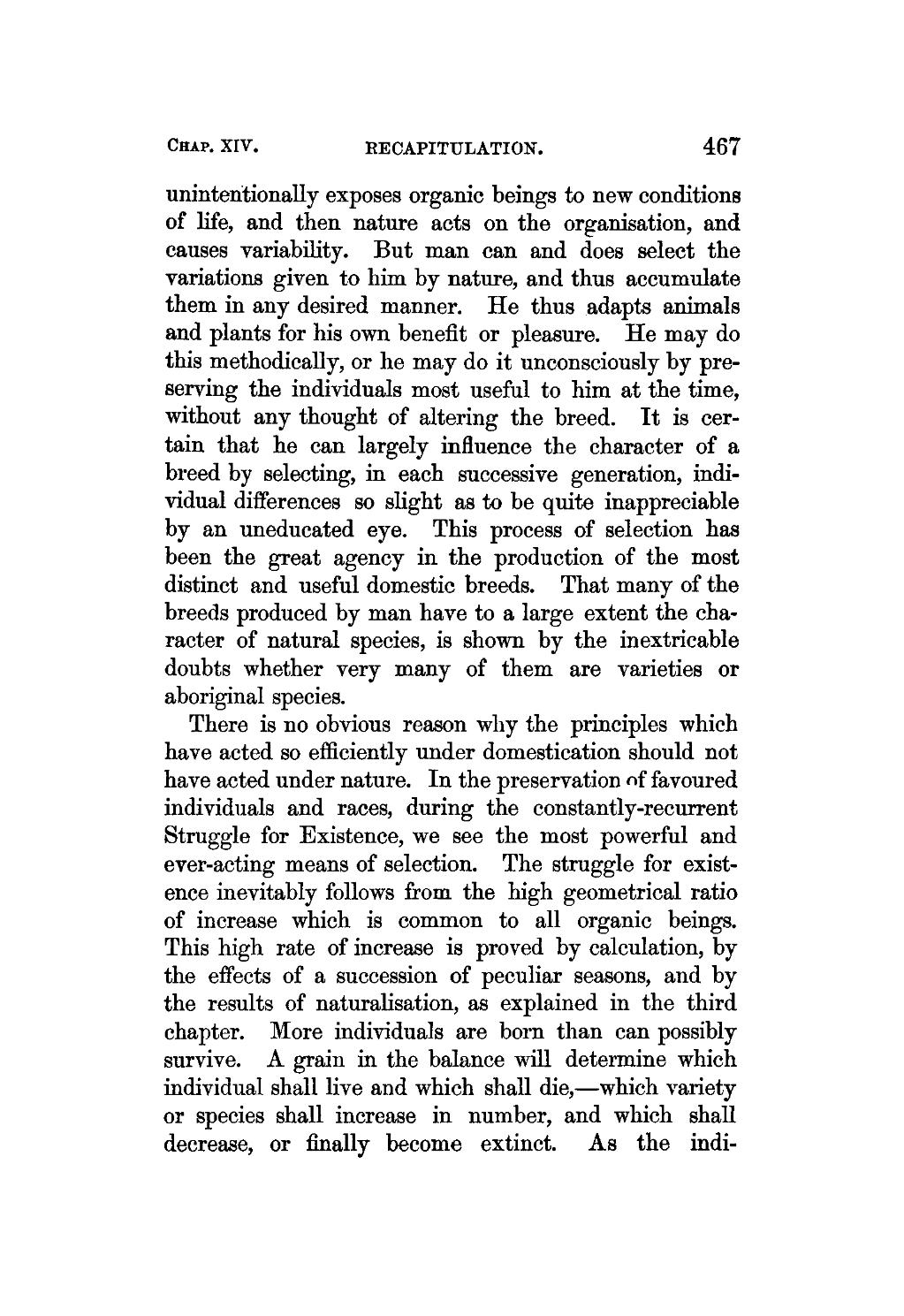unintentionally exposes organic beings to new conditions of life, and then nature acts on the organisation, and causes variability. But man can and does select the variations given to him by nature, and thus accumulate them in any desired manner. He thus adapts animals and plants for his own benefit or pleasure. He may do this methodically, or he may do it unconsciously by preserving the individuals most useful to him at the time, without any thought of altering the breed. It is certain that he can largely influence the character of a breed by selecting, in each successive generation, individual differences so slight as to be quite inappreciable by an uneducated eye. This process of selection has been the great agency in the production of the most distinct and useful domestic breeds. That many of the breeds produced by man have to a large extent the character of natural species, is shown by the inextricable doubts whether very many of them are varieties or aboriginal species.
There is no obvious reason why the principles which have acted so efficiently under domestication should not have acted under nature. In the preservation of favoured individuals and races, during the constantly-recurrent Struggle for Existence, we see the most powerful and ever-acting means of selection. The struggle for existence inevitably follows from the high geometrical ratio of increase which is common to all organic beings. This high rate of increase is proved by calculation, by the effects of a succession of peculiar seasons, and by the results of naturalisation, as explained in the third chapter. More individuals are born than can possibly survive. A grain in the balance will determine which individual shall live and which shall die,—which variety or species shall increase in number, and which shall decrease, or finally become extinct. As the indi-

